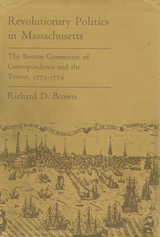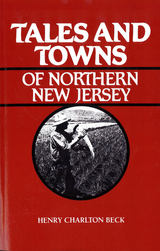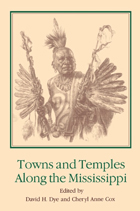


In this new book, Andrew M. Manshel draws from both urbanist theory and his first-hand experiences as a urban public space developer and manager who worked on Bryant Park and later applied its strategies to an equally successful redevelopment project in a very different New York neighborhood: Jamaica, Queens. He candidly describes what does (and doesn’t) work when coordinating urban redevelopment projects, giving special attention to each of the many details that must be carefully observed and balanced, from encouraging economic development to fostering creative communities to delivering appropriate services to the homeless. Learning from Bryant Park is thus essential reading for anyone who cares about giving new energy to downtowns and public spaces.

More than a century and a half ago, John Adams urged scholars investigate the communications of the Boston Committee of Correspondence, the most radical and important of the revolutionary committees of correspondence. Such a study, Adams suggested, would reveal the underlying impetus of the revolutionary movement. Now, for the first time, Richard D. Brown has made an exhaustive and systematic analysis of the committee that set a pattern for America and for the world by keeping alive the revolutionary spirit at a time when the issues were cloudy and public interest was dormant.
The Boston committee, organized to arouse the people of Massachusetts and to inform them of their rights, initiated the use of local committees of correspondence and went on to become a major revolutionary institution which helped bring about fundamental changes in Massachusetts politics. Mr. Brown's book focuses on the years 1772 to 1774, when the inhabitants of Massachusetts moved from quiet accommodation with the British imperial system to massive rebellion against it. His investigations of the records of the Boston committee and of voluminous town records never before studied have resulted in a revision of previous interpretations regarding the interaction between leaders in Boston and the people in the towns.
The author's findings indicate that the Boston committee did not control Massachusetts political action, manipulating the political behavior of the towns, as earlier theorists have suggested. Though Boston was a leader, the towns generally acted independently, and government by consent developed effectively on the local level. The letters which passed between the capital and the countryside reveal an expanding political consciousness and an ever-increasing political sophistication at the grass-roots level. They articulate an essentially radical view of politics based on popular sovereignty.
As an account of the process of political integration among a colonial people engaged in an independence movement, this book will appeal not only to historians but also to political scientists concerned with the emerging nations of the twentieth century.


A Dan Josselyn Memorial Publication
Specialists from archaeology, ethnohistory, physical anthropology, and cultural anthropology bring their varied points of view to this subject in an attempt to answer basic questions about the nature and extent of social change within the time period. The scholars' overriding concerns include presentation of a scientifically accurate depiction of the native cultures in the Central Mississippi Valley prior and immediately subsequent to European contact and the need to document the ensuing social and biological changes that eventually led to the widespread depopulation and cultural reorientation. Their findings lead to three basic hypotheses that will focus the scholarly research for decades to come.
Contributors include:
George J. Armelagos, Ian W. Brown, Chester B. DePratter, George F. Fielder, Jr., James B. Griffin, M. Cassandra Hill, Michael P. Hoffman, Charles Hudson, R. Barry Lewis, Dan F. Morse, Phyllis A. Morse, Mary Lucas Powell, Cynthia R. Price, James F. Price, Gerald P. Smith, Marvin T. Smith, and Stephen Williams
READERS
Browse our collection.
PUBLISHERS
See BiblioVault's publisher services.
STUDENT SERVICES
Files for college accessibility offices.
UChicago Accessibility Resources
home | accessibility | search | about | contact us
BiblioVault ® 2001 - 2024
The University of Chicago Press









